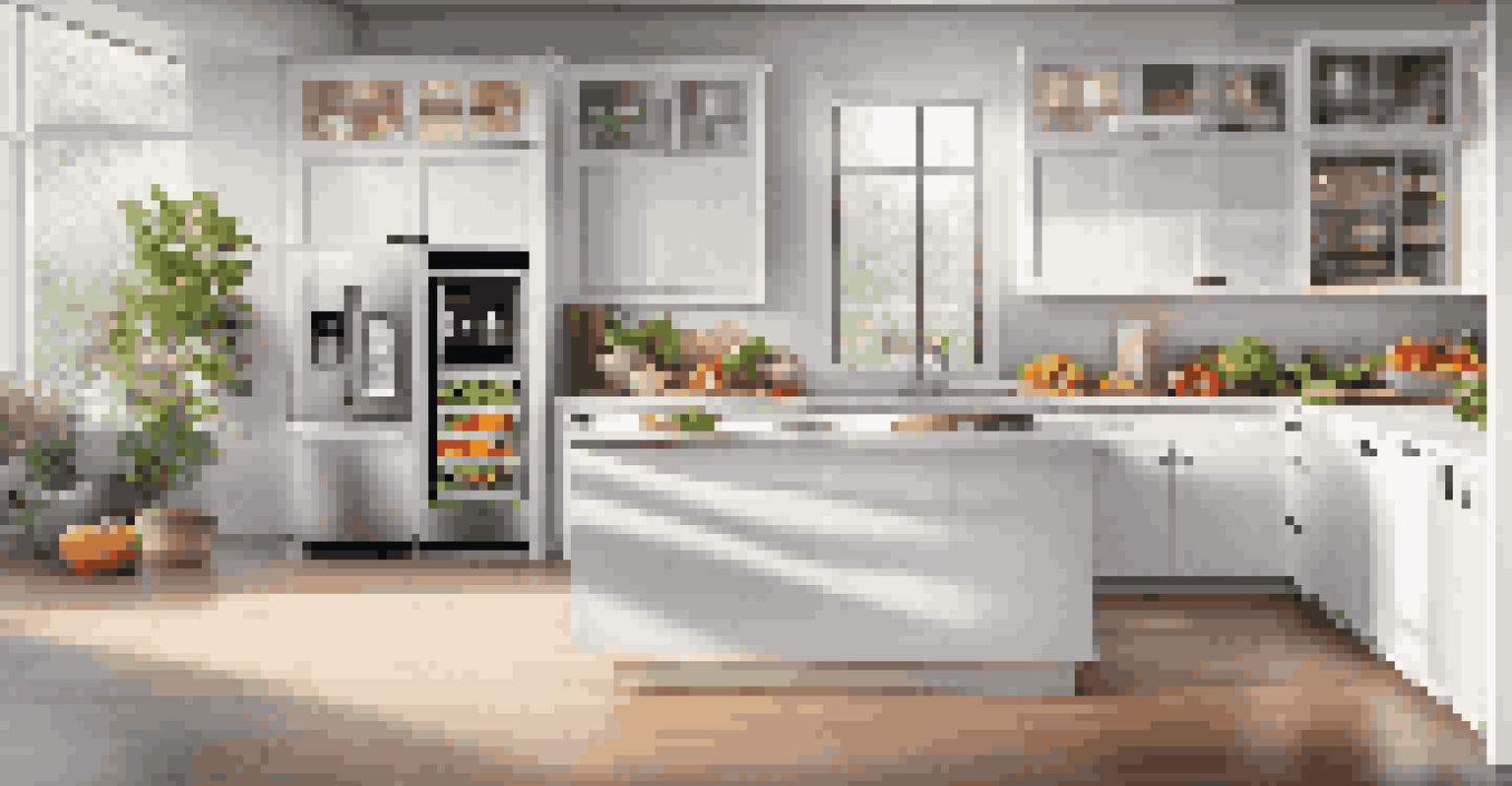Home Automation and the Future of Smart Appliances

What is Home Automation and Why Does it Matter?
Home automation refers to the technology that allows you to control various devices in your home remotely. Imagine being able to turn off your lights, adjust your thermostat, or even start your coffee maker from your smartphone. This level of convenience not only simplifies your daily routine but also adds a layer of security and energy efficiency.
The greatest benefit of technology is that it enables us to do things we never thought possible.
As more people embrace smart technology, the concept of automation becomes increasingly significant. It's not just about luxury; it’s about enhancing our quality of life. With smart appliances, you can streamline your tasks and save time for what truly matters—spending moments with family and friends.
In a world where time is precious, home automation is becoming a vital part of our lives. It empowers homeowners to make their spaces more functional and enjoyable, ensuring that technology works for us rather than the other way around.
The Evolution of Smart Appliances
Smart appliances have come a long way from the basic functionalities of yesteryears. Initially, they were limited to just a few features, like remote control via an app. Now, they can learn your habits, suggest energy-saving settings, and even communicate with each other for a seamless home experience.

Consider your refrigerator, for example. Modern smart fridges can monitor their contents, suggest recipes based on what's inside, and even notify you when you're running low on essential items. This evolution not only makes cooking easier but also helps reduce food waste.
Home Automation Enhances Convenience
Home automation simplifies daily routines by allowing remote control of devices, making life more functional and enjoyable.
This evolution signifies a shift in how we interact with everyday items. As these appliances become smarter, they not only serve their primary functions but also enhance our overall lifestyle, making daily chores more manageable.
Benefits of Smart Appliances in Home Automation
One of the most significant benefits of smart appliances is energy efficiency. Many smart devices are designed to consume less power, which can lead to substantial savings on your utility bills. For example, smart thermostats can learn your schedule and adjust the temperature accordingly, optimizing energy use without sacrificing comfort.
Automation is not a job killer; it is a job creator that frees us to do what we do best: think, create, and innovate.
Additionally, these appliances can improve your home security. Smart cameras, doorbells, and locks allow you to monitor your property from anywhere, providing peace of mind when you're away. Imagine receiving an alert on your phone when someone approaches your front door, giving you a sense of control over your home environment.
Furthermore, smart appliances can enhance your overall quality of life by freeing up your time. With automation, you can program your dishwasher or washing machine to run on a schedule, allowing you to spend more time on activities you enjoy rather than mundane chores.
Challenges Facing Smart Appliance Adoption
Despite their many benefits, smart appliances come with challenges that may hinder widespread adoption. One significant concern is compatibility; not all smart devices can communicate with one another. This can lead to frustration for users who want a cohesive home automation system.
Another issue is cybersecurity. As we connect more devices to the internet, the risk of hacking increases. Homeowners need to be cautious and ensure that their devices have strong passwords and are regularly updated to protect their personal information.
Energy Efficiency Saves Money
Smart appliances are designed to consume less power, leading to significant savings on utility bills while optimizing comfort.
Lastly, the initial investment can be a barrier. Smart appliances often come with a higher price tag than their traditional counterparts. However, many users find that the long-term savings on energy bills and increased convenience often justify the upfront costs.
The Role of AI in Smart Appliances
Artificial Intelligence (AI) is transforming the landscape of smart appliances. With AI, devices can learn from user behavior, making them more efficient over time. For instance, a smart oven can learn your cooking preferences and adjust cooking times and temperatures accordingly, ensuring perfect results every time.
Moreover, AI can facilitate predictive maintenance. Smart appliances can monitor their performance and alert users when maintenance is needed, potentially preventing costly breakdowns. Imagine your washing machine notifying you that a part is wearing out before it stops working altogether.
The integration of AI not only enhances the functionality of smart appliances but also contributes to a more personalized experience. As these devices become more intelligent, they can adapt to our lifestyles, making home automation even more intuitive.
Future Trends in Home Automation
As technology continues to evolve, the future of home automation looks incredibly promising. One trend is the integration of voice control, allowing users to operate appliances hands-free. Picture walking into your kitchen and simply saying, 'Start the coffee maker,' as your appliance responds immediately.
Another exciting development is the rise of interconnected ecosystems. Companies are increasingly focusing on creating devices that work seamlessly together, providing a more unified home experience. This means that your smart thermostat, lights, and appliances can all communicate and work in harmony, enhancing efficiency.
Future Trends Embrace Sustainability
The future of home automation will prioritize eco-friendly features and interconnected systems, aligning technology with environmental needs.
Lastly, sustainability will play a significant role in shaping the future of smart appliances. As consumers become more environmentally conscious, manufacturers are likely to prioritize eco-friendly features, such as energy-saving modes and recyclable materials, ensuring that technology is in line with our planet's needs.
How to Get Started with Home Automation
Getting started with home automation doesn't have to be overwhelming. A good first step is to identify which areas of your home could benefit the most from smart technology. For instance, if you often forget to turn off lights, smart bulbs could be an excellent addition to your home.
Next, consider starting with a central hub or smart assistant, such as Amazon Alexa or Google Home. These devices can serve as the brain of your smart home, allowing you to control various appliances and gadgets through a single interface. This can simplify your experience and provide a structured approach to automation.

Lastly, always research and choose devices that fit your lifestyle and budget. There are plenty of affordable options out there, and starting small can help you gradually build a cohesive smart home system that meets your needs.